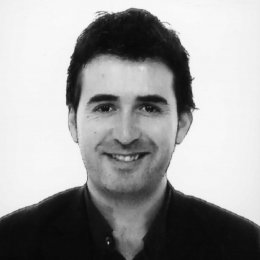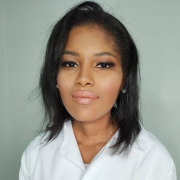How did you become interested in research relating to Hypertension?
I am interested in clinical research and basic science applicable to real problems in our society, so cardiovascular disease and hypertension is an interesting topic for me.
I became part of the department of human physiology (University of Murcia, Spain) in my last year of undergraduate studies (1999). Following this, I worked with Dr Carbonell who had an interest in hypertension and I have continued in this area.
Describe your research & the program/lab (info of your supervisor) that you are in?
My principal research interest is the physiology of the central and peripheral mechanisms involved in the regulation of blood pressure and salt sensitivity with a focus on the role of the renal dopaminergic system and oxidative stress.
What do you consider to be your substantial scientific contribution so far (provide Pubmed PMID if possible)?
We have been the first to describe the association of renal DJ-1 with renal Dopamine 2 receptors and hypertension.
Cuevas S, Zhang Y, Yang Y, Escano C, Asico L, Jones JE, Armando I, Jose PA.
Role of renal DJ-1 in the pathogenesis of hypertension associated with increased reactive oxygen species production. Hypertension. 2012 Feb;59(2):446-52.
PMID: 22215708 [PubMed – indexed for MEDLINE]
What is your favourite manuscript from a lab other than your own (provide Pubmed PMID if possible)?
There are so many interesting manuscripts that I read that I do not have a single favourite manuscript. I am including one that was important for me because it was the first paper than changed my perspective about the role of oxidative stress in cells function.
PMID: 16809515 [PubMed – indexed for MEDLINE]
Rhee SG. Cell signaling. H2O2, a necessary evil for cell signaling. Science. 2006 Jun 30;312(5782):1882-3.
What facilities are essential for your research?
– I use other core facilities in the university like confocal microscopy, or qPCR to determine mRNA expression.
– In addition, we rely heavily on the veterinary team in our group, directed by Dr Larry Asico and we utilize a technology (subcapsular infusion of siRNA in the kidney) to silence the expression of specific proteins and identify which are essential to blood pressure regulation.
Where do your research strengths lie? Why? What are your research weaknesses? How will you improve?
I think that, the strengths lie of our research are our advanced surgical techniques that, as I said, allow us to identify what genes are associated to hypertension, and recognize the mechanism by which these proteins regulate the blood pressure.
Our research weaknesses in my opinion could be that it is not easy to find ways to translate the knowledge obtained in basic science to studies in human clinic, to know if our findings have significant importance in human pathologies.
To improve upon these we will work to increase the collaboration between clinical research and basic research.
Describe your unforgettable (proudest) moment in science, and the most challenging situation that you have had to overcome (lessons learnt) so far?
The moment that I finally understood how DJ-1 is involved in the regulation of Nrf2 in the kidney. I spent a lot energy and time and finally got a hypothesis to explain our data (data still not published).
At which conference did you first present? How was your experience?
It was at XXXIV Congress of The Spanish Society for Physiological Sciences. July 2007, Valladolid (SPAIN), was very interesting and stimulating for me.
What upcoming conferences will you be attending, and what is the furthest distance that you have traveled for a conference?
The next meeting that I plan to go is Experimental Biology 2014 in San Diego and the furthest distance that I have traveled for a conference was from Murcia (Spain) to New Orleans (USA) in 2009.
How did you learn about ISH/NIN and its activities?
I got the information about first activity of ISH by mail. I received a mail about the new investigator meeting that they planned to celebrate in New Orleans the last year and I submitted my abstract.
What area(s) do you wish to specialize in the future?
I like cardiovascular diseases and oxidative stress but maybe I would like become involved in other pathologies in the future, such as cancer or autoimmune diseases.
Who is your role model in Science? Why?
I do not have a particular model to follow; I try to be honest with myself and useful for the society, and I am trying to keep working in a field that I like.
What are your scientific goals?
I would like to keep working in science and obtain a faculty position, if is possible in my country (Spain).
Do you have any advice for talented emerging scientists?
Do not put your EGO in your hypothesis, listen carefully to all opinions and believe only in the evidence that the data shows.





















